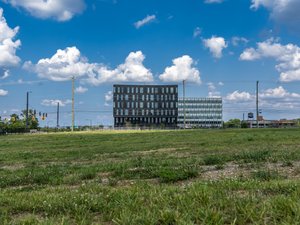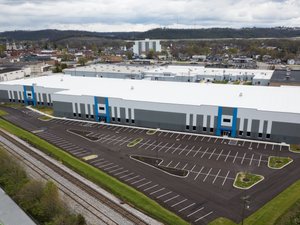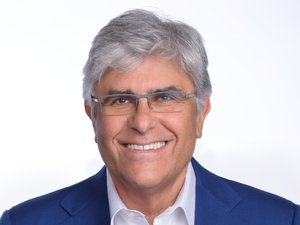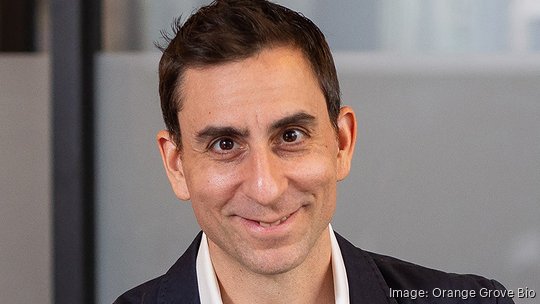
A startup launched based on technology developed at Cincinnati Children’s Hospital has landed a six-figure grant to advance its work. The company is the second from a venture capital firm that’s recently found a home in the region.
Genexys BioMed, a pre-clinical biotech company formed based on intellectual property developed at Cincinnati Children’s and a subsidiary of locally based drug development firm Orange Grove Bio, has been awarded a $320,000 grant to advance its novel cystic fibrosis gene therapy.
The funds are part of a phase one Small Business Innovation Research (SBIR) grant from the National Heart, Lung and Blood Institute at the National Institutes of Health (NIH).
Orange Grove looks to develop technology conceived at institutions such as universities and hospitals into new companies. It first formalized a collaborative agreement with Children’s in early 2022 – shortly after announcing it was moving its headquarters to Cincinnati from New York. The firm said the goal was to help develop and spin out research more quickly.
It optioned the IP for Genexys BioMed in December 2022, and the startup was born.
Peter Alff, CEO of Genexys BioMed and a senior venture partner at Orange Grove Bio, said the company has the ability to fill an unmet need in the gene therapy space – and the NIH funding proves excellent validation at this stage.
Genexys is developing a non-viral, non-lipid genetic medicine platform for the treatment of cystic fibrosis, a genetic disorder that affects the lungs, pancreas and more. Many people with CF face significant challenges, including frequent hospitalizations and complications such as CF-related diabetes and depression.
“The real driver of the interest (for Orange Grove to pursue this) was the novelty of this approach,” Alff told me. “There's a huge problem in the gene therapy space, and (cystic fibrosis) is a disease that remains very poorly treated in many cases. We think we can make a positive impact and ultimately expand this to (where it’s) a lifetime treatment akin to a cure for all CF patients.”
Technology developed at Cincinnati Children's lab
The technology behind Genexys was developed at Cincinnati Children's by Assem Ziady, a cystic fibrosis researcher, but its foundation dates back more than 20 years, he said.
Ziady, a tenured professor in the division of bone marrow transplantation, was recruited to the medical center back in 2014, bringing with him work he started at Case Western Reserve University, then Emory University in Atlanta.
In his role as Genexys’ academic founder, Alff said Ziady would continue to work closely with the company on an advisory basis.
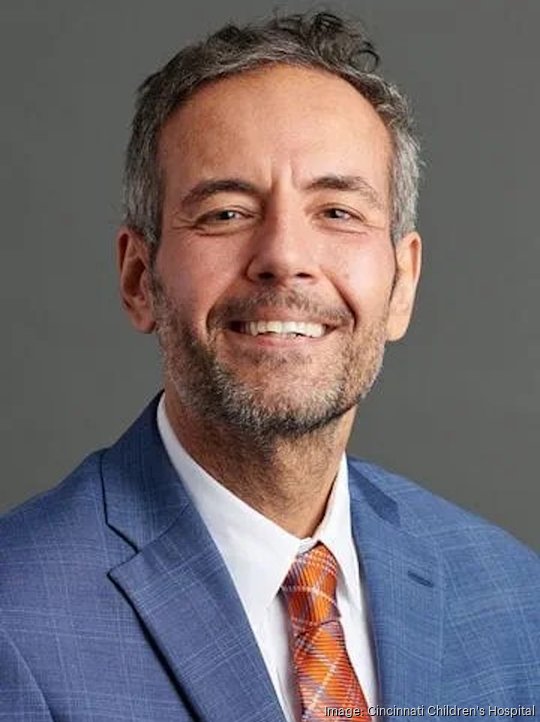
Ziady said the phase one funds will allow the Genexys team to continue to develop the technology: Gene therapy involves the introduction and replacement or repair of a specific portion of an individual’s genetic code to treat or cure a disease, and the team needs to better understand how the platform would affect the body and how to enhance its efficacy.
If proven safe, the potential in the arena is high, Ziady said, especially for CF.
Genexys BioMed will look to deliver therapeutic mRNA or DNA directly to the lungs of a CF patient using a non-viral delivery system. Its technology can deliver large genetic payloads using a less toxic approach that can be targeted and evade the body’s automatic immune response.
Per Ziady: “The efficient delivery (of nucleic acids) is by far the most challenging and unsolved problem in gene therapy.”
Instead of constantly trying new vectors (or tools used to deliver genetic material into cells), he focused on ways to modify the host, using small molecules, like caffeine, to make target cells more receptive to the gene therapy.
The idea, in short, is to repair or replace the gene (where CF patients have a mutation, or error) with the correct copy to allow those cells to function properly.
“A gene therapy for CF ... it's the holy grail,” he told me. "The ideal vector for CF has to be safe, has to be able to circumvent the barriers in the lung and other organs affected by CF and should be amenable for administration."
A CF treatment for the 30% who have 'nothing'
For cystic fibrosis, it could have huge quality of life implications: Cystic fibrosis affects around 100,000 people worldwide, including about 40,000 in the United States. It impacts the lungs and digestive system, causing thick, sticky mucus that leads to chronic lung infections and digestive problems.
New treatments increase the average life expectancy, but CF remains a difficult condition with no cure.
“On the market right now, there are drugs available that help about 70% of patients. But the other 30% essentially have nothing,” Colin Sheehan, Genexys BioMed's senior scientist, told me. Sheehan is serving as the lead investigator in the SBIR award.
“The promise of gene therapy and for Genexys is that this is an agnostic approach,” he added. “This will be a treatment for not only for that 30% but the entire CF population. There is real excitement within the field, because we very quickly might have a solution on the market that (impacts) every single CF patient, not just a subset.”
The platform could also be used in the treatment of other genetic diseases, although the Genexys team declined to elaborate further citing market competition.
Genexys to pursue phase two SBIR funding in coming months
Currently, Genexys BioMed is a team of seven scientists and operators. Alff said that number will scale but slowly.
Alff said Genexys BioMed previously received a $150,000 pre-seed investment from Ohio Third Frontier’s Technology Validation and Startup Fund (TVSF), which Orange Grove matched.
To follow the SBIR phase one funding, Genexys plans to submit for a phase two award in the next nine to 12 months, Sheehan said. Those awards typically sit north of $2 million.
Ziady hopes Orange Grove’s involvement can greatly accelerate the tech in a way an academic lab cannot.
“That's the promise,” he said. “The potential of this technology is very high.”
Orange Grove Bio originally landed at University of Cincinnati’s 1819 Innovation Hub before moving its HQ downtown in 2023.
To date, Orange Grove has launched six subsidiaries, and in addition to Cincinnati Children’s, has publicly announced partnerships with UC, University of Chicago and University of Pittsburgh, among others.
Genexys is its second startup based in the region. Last year, Preservation Bio, named a Cincy Inno Startup to Watch, was awarded a $2.05 million SBIR grant. That firm is studying the safe refrigeration of donated platelets, which would extend their shelf life.

